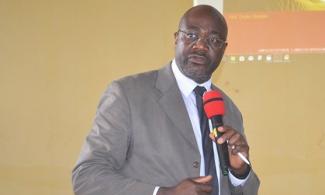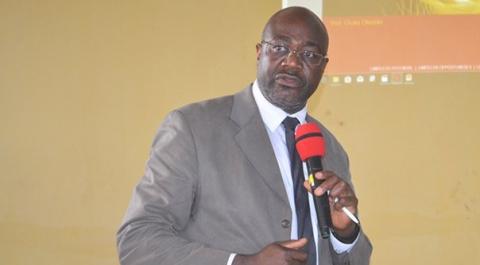
The one-year initiative, which commenced in July 2020, will, according to Project Coordinator, Prof Chukwumerije Okereke, help to widen the horizon of the discourse and compliment the current government-led NDC revision process.
A project aimed at increasing public awareness of Nigeria's climate change plan has injected new life into the ongoing revision process of the country’s Nationally Determined Contribution, which is due for submission in November 2020.
Titled “Promoting critical analysis of, and stakeholders’ engagement with the revision of Nigeria’s NDC,” the project is being undertaken by the Centre for Climate Change and Development of the Alex Ekwueme Federal University, Ndufu Alike, Ikwo (AEFUNAI), Ebonyi State, with support from the World Resources Institute.
The one-year initiative, which commenced in July 2020, will, according to Project Coordinator, Prof Chukwumerije Okereke, help to widen the horizon of the discourse and compliment the current government-led NDC revision process.

“Given that the NDC revision process has already started and is slated to be completed by November 2020, the immediate commencement of this project is highly desirable to enable the capture of the analytical pieces and engage the public and critical stakeholders to incorporate their views into the window ending September 2020,” said Okereke, a professor in Environment and Development at University of Reading, United Kingdom, and Director of the AEFUNAI Centre for Climate Change and Development.
Besides commissioning insightful short analysis on several topics relevant for the Nigerian NDC as well as organising and promoting a stakeholder engagement and public debate on relevant issues, the project is expected to embark on targeted public awareness to stimulate the engagement of the wider public in the NDC revision and eventually in its implementation afterwards.
According to Okereke, experts will be commissioned to write a number of detailed articles on selected topics to help provide a better understanding of the key issues at stake.
He added that, “The desire to have informative figures, graphs and charts wherever possible would be emphasised. In addition, they will produce a short summary of the key points of their analysis.”
Okereke stressed that all the national stakeholder dialogues to discuss the papers would be convened via webinars, which will run through to November when the NDC is due to be submitted.
Nigeria is among the 190 countries that submitted Intended Nationally Determined Contributions to the United Nations Framework Convention of Climate Change in the run up to the 25th Conference of the Parties (COP25) in Paris, France in 2015.
Nigeria’s INDC has since been subsequently converted into the Nationally Determined Contribution following the country’s ratification of the Paris Agreement in May 2017.
With a promise of 20 per cent unconditional emission reduction and 45 per cent conditional emissions by 2030 compared to the 2010 based line scenario, experts say the country’s NDC is ambitious.
The NDC is built on the philosophy of pursuing socioeconomic development while reducing carbon pollution.
It also outlines several measures that the government said it would take to meet the self-imposed targets, even as an emphasis is placed on adaptation given the nation’s seeming vulnerability to climate change.
The first stakeholder meeting was conducted as a “joint mission with UNDP” to kick-off NDC revision and setting timelines held in Abuja on March 5, 2020.